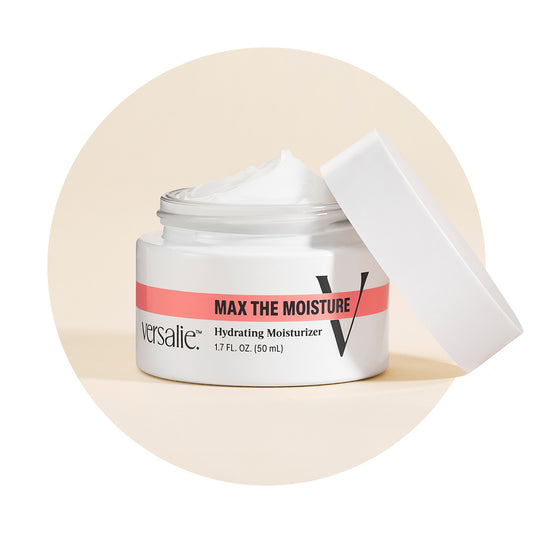Perimenopause and menopause can sometimes feel like a huge mystery. As you enter early perimenopause, it may be hard to know whether the changes in your body are related to your hormones or something else entirely. Are you extra tired because of perimenopause? Or because you have a job, spouse, three kids, and all your other responsibilities?
It would be nice to get a clear answer. If you’ve asked yourself, “Is this perimenopause?” — you’re not alone. You may have even wondered, “Is there a blood test for perimenopause or menopause?”
How is perimenopause diagnosed?
See Perimenopause Symptoms: The What, The Why, and The When for a full explanation, but the short answer is that perimenopause is a diagnosis of exclusion. If you’re in the correct age range and doctors have ruled out more concerning diagnoses, it’s probably perimenopause. If this leaves you wanting more, we hear you!
Perimenopause does not need to be diagnosed by a healthcare provider or a lab test because it’s not a medical disorder. But many people find comfort in having a medical professional confirm the cause of changes they’ve noticed in their bodies.

Can a blood test help to diagnose menopause or perimenopause?
Researchers have been exploring the possibility of blood tests that can provide a more definitive answer to “Is this perimenopause?”. The focus has primarily been on measuring hormones that act on, or are produced in, the ovaries: follicle-stimulating hormone (FSH), luteinizing hormone (LH), and anti-Müllerian hormone (AMH). The ovaries become less responsive to these hormones during perimenopause as the finite lifetime egg supply begins to dwindle. To compensate, the body makes more hormones. If you go to a doctor, they may test for higher levels of these hormones:
- FSH. A hormone produced by the pituitary gland, which is located underneath the brain. It helps regulate the menstrual cycle. FSH levels change throughout the menstrual cycle, with levels highest right before ovulation. During menopause, FSH levels rise as the ovaries produce less estrogen.
- AMH. A hormone produced by the ovaries. High levels usually mean there are healthy eggs inside the ovaries. As we age, the number of healthy eggs decreases, along with the natural decline of AMH levels.
What are the problems with blood tests for menopause?
The idea of a blood test is great, but there are many limitations which minimize the usefulness of these tests. By design, hormone levels fluctuate throughout a menstrual cycle (and even day-to-day). If you’re having irregular periods, you may not even be sure when the right time to test would be.
A blood test alone cannot give you a clear picture of where you are in the menopausal transition. A doctor cannot confirm that a single high FSH level means you’re in menopause. FSH levels need to be consistently elevated, along with not getting a period for 12 months, for a doctor to confirm you’ve reached menopause.
On the flip side of that, the symptoms are more likely to point to perimenopause than the blood test. If someone has low FSH levels but is experiencing symptoms like hot flashes and period changes, a doctor can’t rule out perimenopause. And what’s most important for them is to treat the symptoms, not treating the test results.
In addition, with certain hormone therapies (like birth control pills), an FSH test isn’t an accurate reflection of menopause status. This is because the FSH levels may be suppressed in people currently using estrogen-containing oral contraceptives.

The future of menopause diagnosis
Blood tests for menopause are not yet a reliable tool for diagnosis. Scientists continue to explore ways to provide more information and details about perimenopause and menopause to patients. Recent research has shown that AMH levels may be used to help predict (within 1 to 2 years) when someone’s final period will occur. However, because this is new, it is not currently a standard recommended practice.
To date, there's no simple test to predict or confirm menopause or perimenopause, but research continues. As technology advances and our understanding of menopause deepens, we may see more reliable tests in the future.
While future research is promising, the science just isn’t there yet. The good news is that you typically don’t need labs to figure this out or get effective therapies. Typically, the clearest indicators that you’re in perimenopause are your symptoms and medical history. If you think you’re experiencing perimenopause, it’s a great time to talk to a doctor or menopause specialist. A medical provider can often diagnose perimenopause after reviewing medical history, menstrual history, and current signs and symptoms of menopause.








